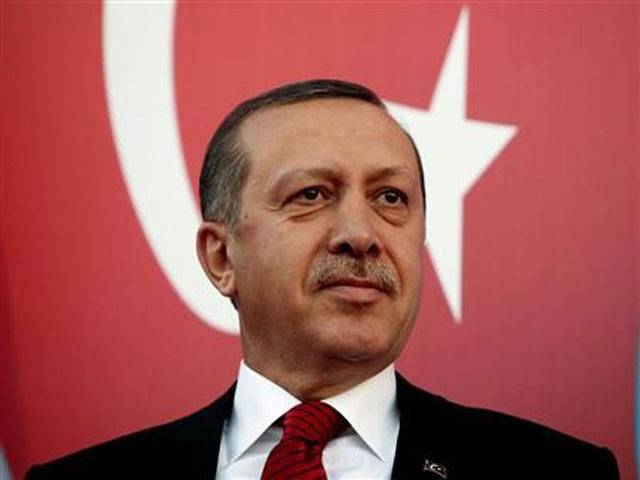ANKARA (Reuters/AFP) - Turkish Prime Minister Tayyip Erdogan accused the UN Security Council on Tuesday of indirectly supporting the "oppression" of the Syrian people by failing to adopt a united stance on Syria.
Once a friend of Damascus, Turkey has become a fierce critic of President Bashar al-Assad over his year-long crackdown on his opponents and has called for the Syrian leader to step down.
"In not taking a decision, the UN Security Council has indirectly supported the oppression. To stand by with your hands and arms tied while the Syrian people are dying every day is to support the oppression," Erdogan said.
"We will not turn our backs on the Syrian people, we will not leave the Syrian people to their own fate," Erdogan told a meeting of his ruling AK Party on Tuesday.
Erdogan also said his government was working to secure the immediate release of two Turkish journalists who went missing in Syria just under a month ago. "We are continuing our intense efforts in relation to the two Turkish journalists detained in Syria. We are continuing our efforts on every level to secure their immediate release and ensure their return to Turkey," he said.
Meanwhile, fierce clashes broke out between Syrian troops and rebels on Tuesday as the regime sent reinforcements into a number of hotspots despite President Bashar al-Assad's pledge to implement a peace plan.
The Syrian Observatory for Human Rights said fighting gripped several parts of the country including the southern province of Daraa, northwest Idlib province, Homs in central Syria and near the capital.
At least 18 civilians were killed in the fighting along with seven soldiers and four rebels, the Britain-based group said.
In Daraa, cradle of the one-year uprising against Assad's regime, fighting erupted overnight in the town of Inkhel after rebels attacked army checkpoints.
In the same region, dozens of troop carriers arrived in the town of Dael, where the army carried out raids and arrests the day before.
Sayyed Mahmud, an activist in Daraa reached by Skype, told AFP the situation was extremely tense in the town.
"They burned down 14 houses yesterday. They are arresting people and have sent in troop reinforcements," he said.
"As part of the regime's campaign to starve the people, troops are raiding homes, destroying food stocks and equipment. They go into bakeries and destroy the dough. There are 15-hour power cuts a day."
In Idlib, heavy fighting took place on the outskirts of the town of Taftanaz, where five civilians, four rebels and seven soldiers were killed amid heavy machinegun fire and shelling, the Observatory said. Clashes killed two civilian elsewhere in the province.
In Damascus province, fighting was reported in the towns of Douma and in Zabadani, where the army was carrying out arrests and raiding homes.
In central Homs, nine civilians were killed in shelling of several neighbourhoods of the city and two others died in fighting elsewhere in the province.
The latest unrest came as Red Cross chief Jakob Kellenberger was on a fresh mission to Syria - his third since last year when Damascus launched a crackdown on anti-government protests that the UN says has left more than 9,000 dead.
Meanwhile, the United States said Tuesday that Syrian President Bashar al-Assad was failing to live up to pledges for a truce and warned that it will judge him by "his actions, not by his words."
"The assertion to Kofi Annan was that Assad would start implementing his commitments immediately to withdraw from cities.
I want to advise that we have seen no evidence today that he is implementing any of those commitments," State Department spokeswoman Victoria Nuland told reporters."We're going to judge this guy by his actions, not by his words," she said.
Tuesday, April 16, 2024
Turkey criticises UN over Syria

CM Maryam seeks comprehensive development plan for Murree
April 16, 2024
Court remands XEN in FIA custody
April 16, 2024
PML-N believes in ensuring prosperity, says Azma Bukhari
April 16, 2024
Political Reconciliation
April 16, 2024
Pricing Pressures
April 16, 2024
Western Hypocrisy
April 16, 2024
Policing Reforms
April 15, 2024
Storm Safety
April 15, 2024
Democratic harmony
April 16, 2024
Digital dilemma
April 16, 2024
Classroom crisis
April 16, 2024
Bridging gaps
April 16, 2024
Suicide awareness
April 15, 2024
ePaper - Nawaiwaqt
Advertisement
Nawaiwaqt Group | Copyright © 2024





